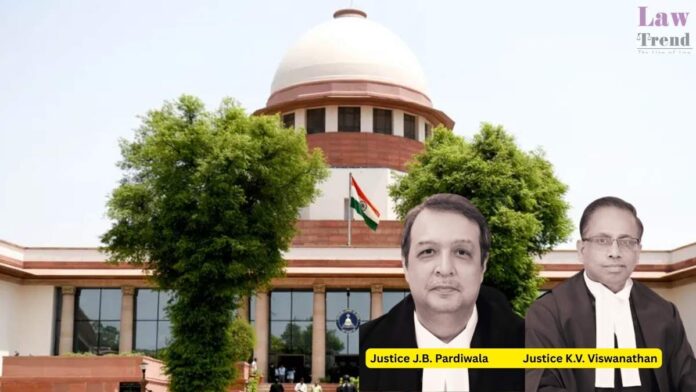The Supreme Court of India, in a significant judgment, has held that an appellate court has the discretion to grant an unconditional stay on the execution of a money decree in “exceptional cases,” such as when the decree is egregiously perverse, riddled with patent illegalities, or facially untenable. A bench comprising Justice J.B. Pardiwala and
To Read More Please Subscribe to VIP Membership for Unlimited Access to All the Articles, Download Available Copies of Judgments/Order, Acess to Central/State Bare Acts, Advertisement Free Content, Access to More than 4000 Legal Drafts( Readymade Editable Formats of Suits, Petitions, Writs, Legal Notices, Divorce Petitions, 138 Notices, Bail Applications etc.) in Hindi and English.




